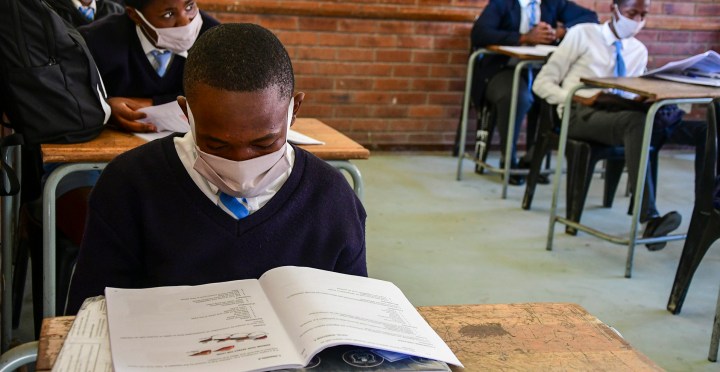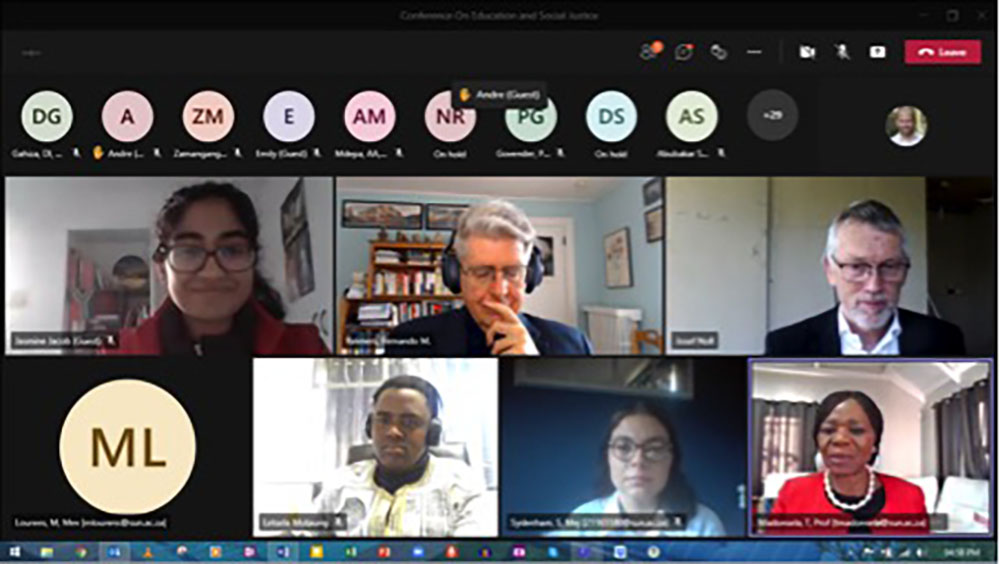EQUALISER OPPORTUNITY
Out of Covid chaos comes a chance for ‘deep disruption’ in education, say experts

Covid-19 has been a major calamity for all people and sectors, including social justice in education, according to a group of academics and entrepreneurial minds. But there is a silver lining: an opportunity for an education renaissance of collaboration and lifelong learning.
Pandemics breed chaos, said Harvard University professor Fernando Reimers. But this moment of calamity can be a moment for “an education renaissance”.
Reimers, a Ford Foundation Professor of the Practice of International Education and director of the Global Education Innovation Initiative at Harvard, was moderating a panel discussion between six thinkers from academia and civil society during a virtual conference on education and social justice on 3 June.
The Ford Foundation is an international foundation based in New York with the mission of advancing human welfare.

The panel of six, from universities and social justice foundations around the world, looked at the possibility of new teaching models and approaches to build back better in the face of Covid-19. (Photo: Supplied).
The day-long conference was under the theme “Social Justice and Education for the 21st Century: Towards a Decade of Equalising Opportunities and Optimising Social Justice Outcomes in and Through Education” and formed part of an array of projects aiming to mobilise the nation around a Musa Plan for social justice.
Former public protector Thuli Madonsela, the Law Trust Chair in Social Justice at Stellenbosch University, spearheads the plan.
Madonsela says social justice “means the equal enjoyment of all rights and freedoms regardless of who we are or where we come from. This should be reflected in the fair, just and equitable distribution of all opportunities, resources, benefits, privileges and burdens in a society or group and between societies”.
Indeed, panellist Khulekile Msimanga, a chartered accountant (SA) and financial officer for the Thuma Foundation, said during the discussion that “[human] rights that cannot be enacted are like empty salt shakers – they add frustration and deliver no value.”
Founded by Madonsela, the Thuma Foundation aims to defend democracy.
Resilient education
Each panellist – local and from around the world – brought to the table their perspectives on educational models and teaching approaches that would help advance resilient education.
That is, an education that empowers and cultivates students who work towards a world that is more inclusive and sustainable, said Reimers.
Panellists also included Jasmine Jacob from the Indaba Foundation and Indaba Institute – a group driven by high-quality early childhood development – Letsela Motaung from the University of the Free State; Dr Lloyd Chigowe, a postdoctoral fellow at Stellenbosch University; Sarah Sydenham, a law master’s candidate at Stellenbosch University; and Josef Noll, secretary-general of the Basic Internet Foundation and a professor at the University of Oslo.
The group took stock of the calamity caused by the pandemic in human development and elsewhere to spotlight the possibility of not only reclaiming everything that has been lost, but to build back better.
Perspectives were shared on teaching models – based on quality early childhood development, multilingual learning spaces, equal digital education, the need for social justice curriculums at universities, and the value of education on gender-based violence in schools.
It was Reimers who posed a question that would turn the conversation from a festival of ideas towards a practical way forward.
“How do we go beyond advocacy to actually being a part of the solution where we realise that the solution is not going to come from others?” he asked. “There is no Wizard of Oz that is sitting in a bank of resources and capacity. There is just us.”
“Collaboration” and “cohesion” were the panellists’ answers.
“It’s vital that we realise that possibly the biggest barrier to any [solution] is this idea that seeing independent action as a primary vehicle for change is the way to go,” said Jacob, whose affiliations, the Indaba Foundation and Indaba Institute, have established an early child development teacher training centre in the Cape Winelands.
“It’s not about changing what we focus on but rather the way that we work as a collective,” she said.
Jacob and her colleague, Andre Shearer, who is on the board of the Indaba Foundation, argued for a schooling system with more cohesion between the early child development schooling systems and tertiary education.
The pandemic offers time for “deep disruption”, Shearer said.
Speaking anecdotally, Shearer added that he had recently had conversations with the dean of education at Stellenbosch University, Professor Mbulungeni Madiba, and the owner of a high school who both addressed a significant drop in the standards for intake at universities and from primary schools.
“There is no way around this other than collaboration – realising that the early years need to be connected with tertiary years,” he said.
Communication and collaboration like this could create a paradigm shift, Shearer said. “It is almost like turning the pyramid on its head for a moment to allow the curve to flatten a little bit to what it has been.”
Noll, who has a background in the mobile industry, agreed: “We are really at a point where education has to support lifelong learning.”
Noll’s work at the Basic Internet Foundation began to ensure digital inclusion through free internet access and is working on digital inclusion in 11 countries, including South Africa.
“The one and only chance we have is to actually use our educational minds for lifelong learning, and that just says that we really need to start as early as possible because that brings us into this learning modus,” he said. DM
"Information pertaining to Covid-19, vaccines, how to control the spread of the virus and potential treatments is ever-changing. Under the South African Disaster Management Act Regulation 11(5)(c) it is prohibited to publish information through any medium with the intention to deceive people on government measures to address COVID-19. We are therefore disabling the comment section on this article in order to protect both the commenting member and ourselves from potential liability. Should you have additional information that you think we should know, please email [email protected]"



 Become an Insider
Become an Insider